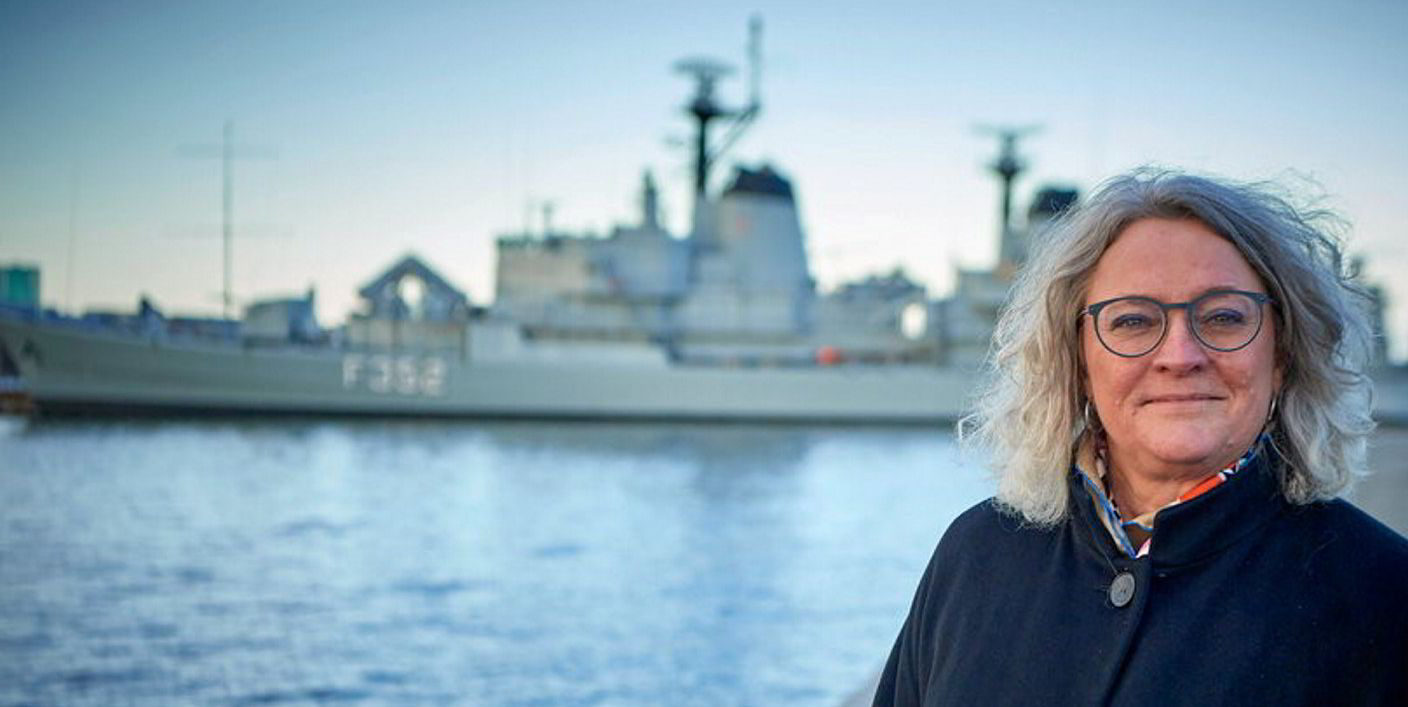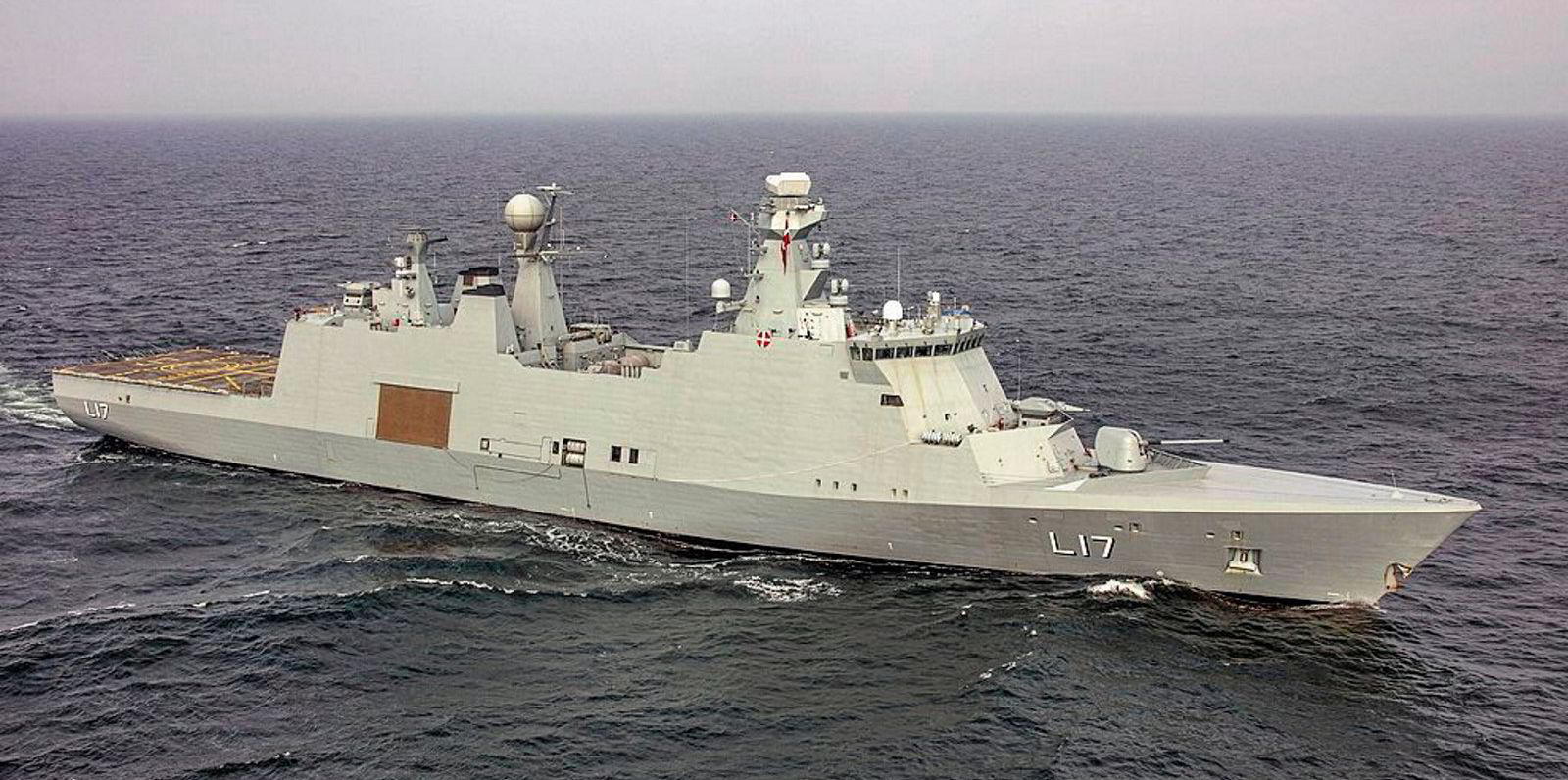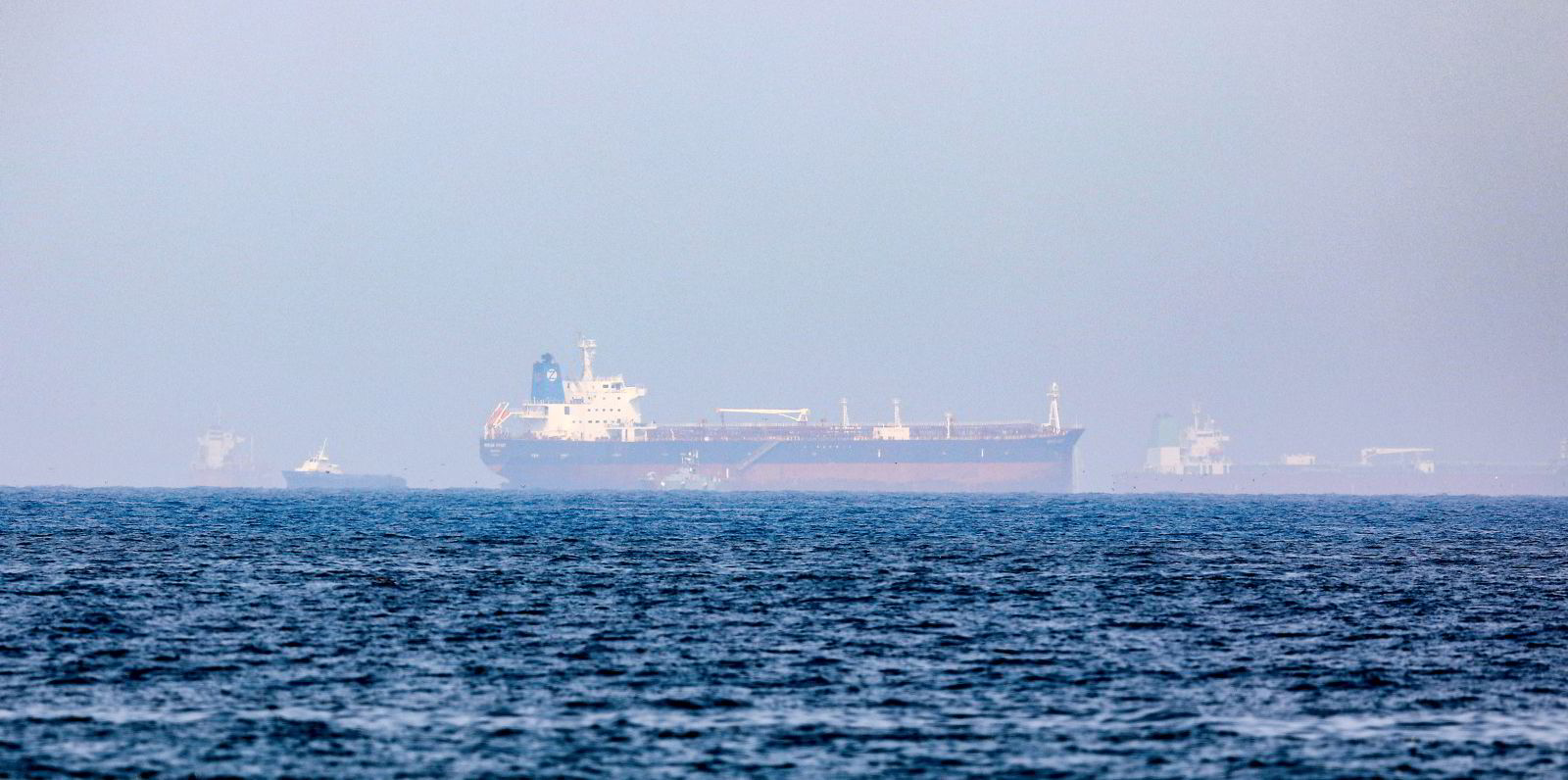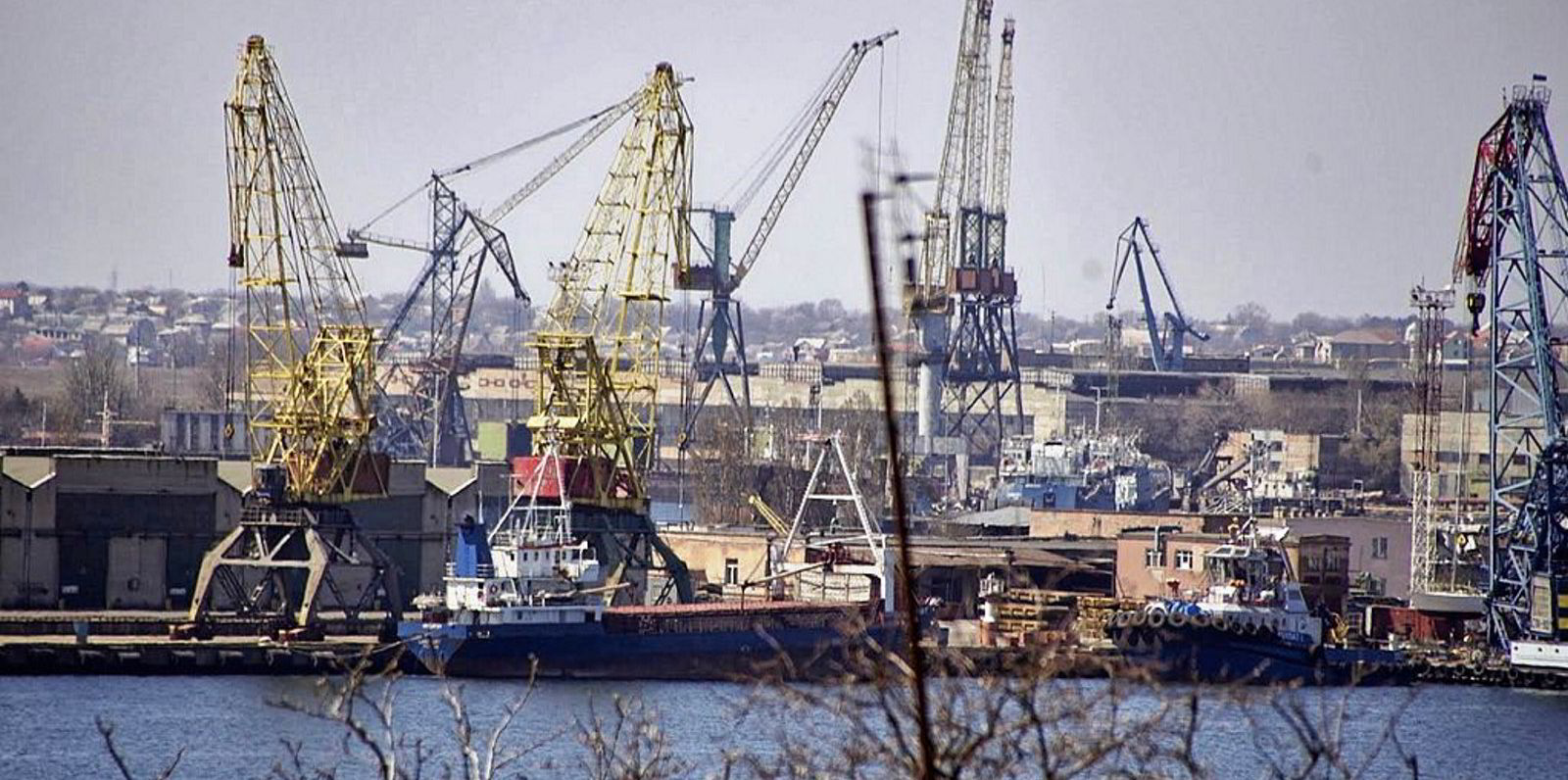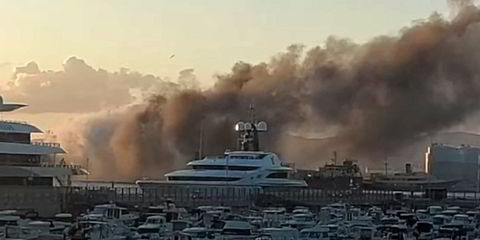Global maritime security in 2021 was defined by an ever-increasing complex web of threat actors, shipping security firm Dryad Global says in its annual review.
Piracy is becoming region-specific, the report said, and confined to West Africa. In South East Asia, where piracy was previously more common, no incidents were recorded last year.
Maritime crime, which primarily involves thefts at anchor or in port, is the most prolific threat facing seafarers, accounting for 76% of all incidents, Dryad added.
Issues arising from overspill of regional or state conflicts account for only 4.5% of all incidents.
Dryad said the economic and social conditions that led to piracy in the Indian Ocean could return as vulnerable states such as Somalia begin to rebalance post-pandemic economies alongside the withdrawal of foreign aid.
The “shadow war” between Israel and Iran has caused an increase in tit-for-tat attacks throughout the Middle Eastern Gulf as Iran shifted its focus to ships associated with Israeli commercial enterprise, and Israel responded by targeting Iranian military vessels or those suspected of involvement in fuel smuggling to Syria.
But the risk of wider commercial shipping becoming involved remains low, Dryad said.
Six suspicious approaches were recorded last year within the Gulf of Aden and Bab al Mandab Strait, but this was far fewer than the 13 in 2020, which included three that could be characterised as attacks.
Iranian-backed Houthi rebel activity remains the most consistent threat throughout the lower Red Sea and Gulf of Aden, Dryad said. Attacks on Saudi and United Arab Emirates maritime traffic, and on vessels suspected of supporting the Saudi-led coalition against the Houthis in Yemen, are likely to continue.
The decline in piracy and maritime crime throughout West Africa in 2021 brought an overall 56% decline in incidents from 2020.
Actual and attempted attacks and vessels being fired upon dropped by more than 85% and the number of vessels being boarded and crews kidnapped declined by 60%.
Implementation of the $195m Integrated National Security & Waterways Protection Infrastructure, also known as the Deep Blue Project (DBP), is often cited as the reason for the fall.
But Dryad remains sceptical, arguing that it would be logical to expect an increasing number of successful counter-piracy operations and a rise in arrests and prosecutions under Nigeria’s Suppression of Piracy and Other Maritime Offences Act if this were the case.
“It is difficult to establish the degree to which assets of the DBP have engaged in offshore counter-piracy interdictions and arrests,” the report said.
But there has been little improvement in core socio-economic conditions that fuel piracy among the communities of Niger Delta states, with the situation compounded by the pandemic.
“Without a tangible improvement in onshore conditions that create legitimate and sustainable alternatives to piracy, it is extremely difficult to see that there has been or will be any substantive deterrence against individuals’ intent to participate in piracy,” the report warned.
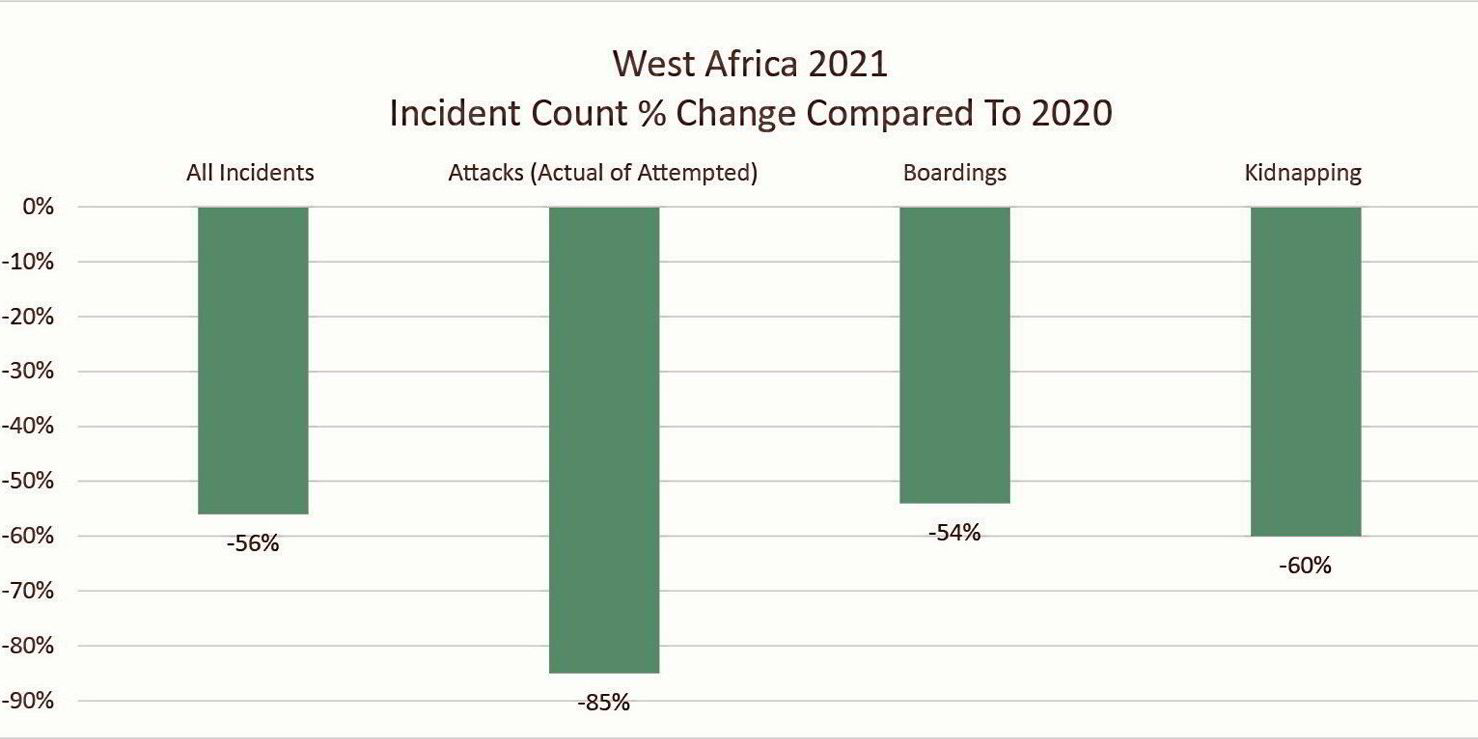
But it added that with Nigeria calling for an end to war risk premiums for vessels operating in its waters, there is a great deal of political investment in the success of the DBP.
“It is highly likely that this investment has translated into a hostile operating environment for any would-be ‘sponsor’ of offshore piracy,” the security company said.
Seventy-seven incidents were recorded in South East Asia in 2021, compared with 65 in 2020.
Decreases were seen in Indonesia, Malaysia, the Philippines, Vietnam and the Sulu and Celebes seas, but there was a strong increase in the Straits of Malacca and Singapore, where 49 incidents were recorded, up from 34 in 2020.
Attacks in the area are typically opportunistic, with larger vessels such as tankers and bulk carriers commonly targeted while underway during darkness.
Assailants are mostly seeking to loot engine spares, many of which are sold or traded at local markets, and the severity level of incidents to seafarers is mostly not high.
Given that around 2,000 merchant ships pass through the waters every day, the situation “is unlikely to resolve itself until enforcement agencies in the region enhance surveillance and increase patrols”, as well as arrest and prosecute perpetrators, Dryad said.
“Criminality at sea loves a security vacuum, and the ambiguity of the international community to police maritime trade beyond state boundaries remains fragile and the cost of doing so is high,” retired Vice Admiral Duncan Potts, who is now director, maritime at Universal Defence & Security Solutions said in the foreword to the Dryad report.
Potts was a former commander of Coalition Maritime Forces Northern Gulf and commander of the European Union Counter-Piracy Operations off Somalia.
